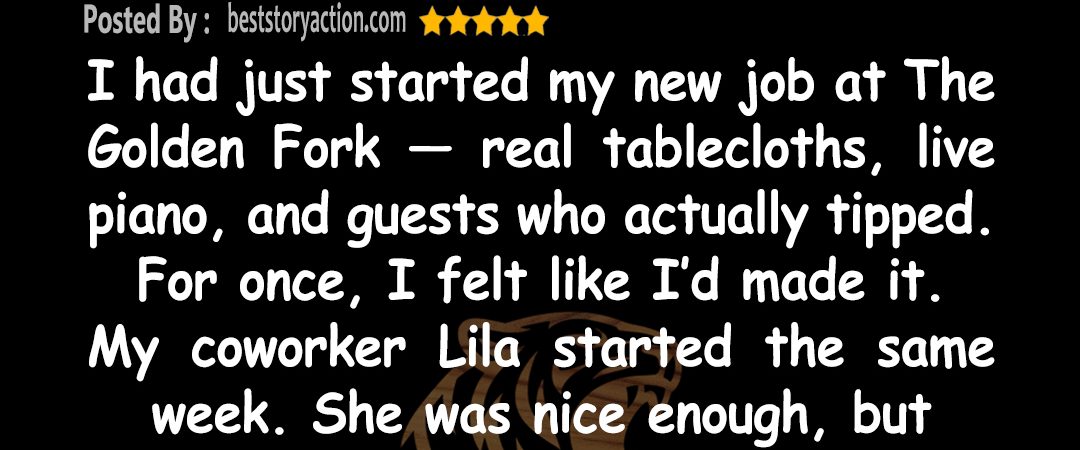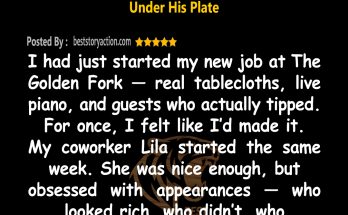A man walked into a luxury restaurant wearing a coat the color of dirty snow, and everyone wanted him gone. I didn’t — and what happened next changed everything.
I still cannot fully explain what happened. Even now, months later, I catch myself staring off in the middle of a slow shift, wondering if it was all some beautifully strange dream.
When I got hired at The Golden Fork, I thought I had finally broken into something better. This wasn’t some greasy establishment where your shoes got stuck to the sticky floor. This was the kind of place with thick menus, real linen napkins folded like origami, and a live pianist playing softly in the corner.
The kind of place where the smallest mistake costs your tip, and the richest guests, who actually tipped, barely looked at you but always wanted to be looked at. This was a fancy new restaurant downtown.
I was 24 and tired of scraping by. I needed a win, especially since I used to work at a greasy diner. The Golden Fork felt like the step up I needed.
Lila, my co-worker, started the same week I did. She was 27, sharp-tongued, and always perfectly put together. She was the type who liked designer perfume, glossy nails, and gave an endless parade of stories about rich men she’d served or dated.
We got along at first. She was funny, and we shared the same jokes. She was also loud and brutally honest, which made the long shifts go by faster. We quickly bonded over having the same tired eyes after working double shifts.
But Lila had this obsession with appearances, with being noticed, with money, rich people, and with looking “the part.” She lived by one rule: “If you look like you belong to them, they’ll treat you like one of them.”
We’d be in the break room, scarfing down half-smashed protein bars, and she’d be applying lipstick with surgical precision. “You don’t just serve money, Maya,” she told me once. “You have to become the fantasy.”
I laughed at her then. But the longer I worked there, the more I realized that to everyone else, that was the game.
It was a Thursday afternoon, the busiest day of the week. The dining room buzzed with energy. Businessmen closing deals over crab cakes, influencers taking selfies over martinis, and couples leaning in close over truffle pasta.
I was moving so fast I barely noticed the door open.
But everyone else did.
The chatter dropped an octave. Someone stopped mid-bite. Even the pianist fumbled a note before catching himself. I turned and saw why.
A man had stepped inside. His coat was frayed at the edges, the color of dirty snow. His shoes were cracked and crusted with mud, while his matted beard tangled like seaweed. His jeans looked dirty, and his hands were shaking. Not from cold — from nerves.
You could see it in the way he looked around, like he was waiting to be kicked out.
Lila, who had just returned from dropping off cocktails at table 9, rolled her eyes so hard I thought they’d get stuck. “Oh, hell no,” she muttered under her breath. “He’s going to scare off the whole lunch crowd!”
Some people turned away, and the pianist completely stopped playing.
Lila was already walking toward the host stand before I could speak. I watched her lean in, whispering with a disgusted tilt of her chin.
“We can’t seat him, right?!” she asked the host, whose name was Brennan — a quiet college student with a nervous habit of tugging his sleeves.
Brennan looked helpless. “He asked politely,” he said, shrugging. “The manager’s out at a supplier meeting.”
Lila crossed her arms. “Well, that’s not my problem. I’m not taking him.”
And just like that, he landed in my section.
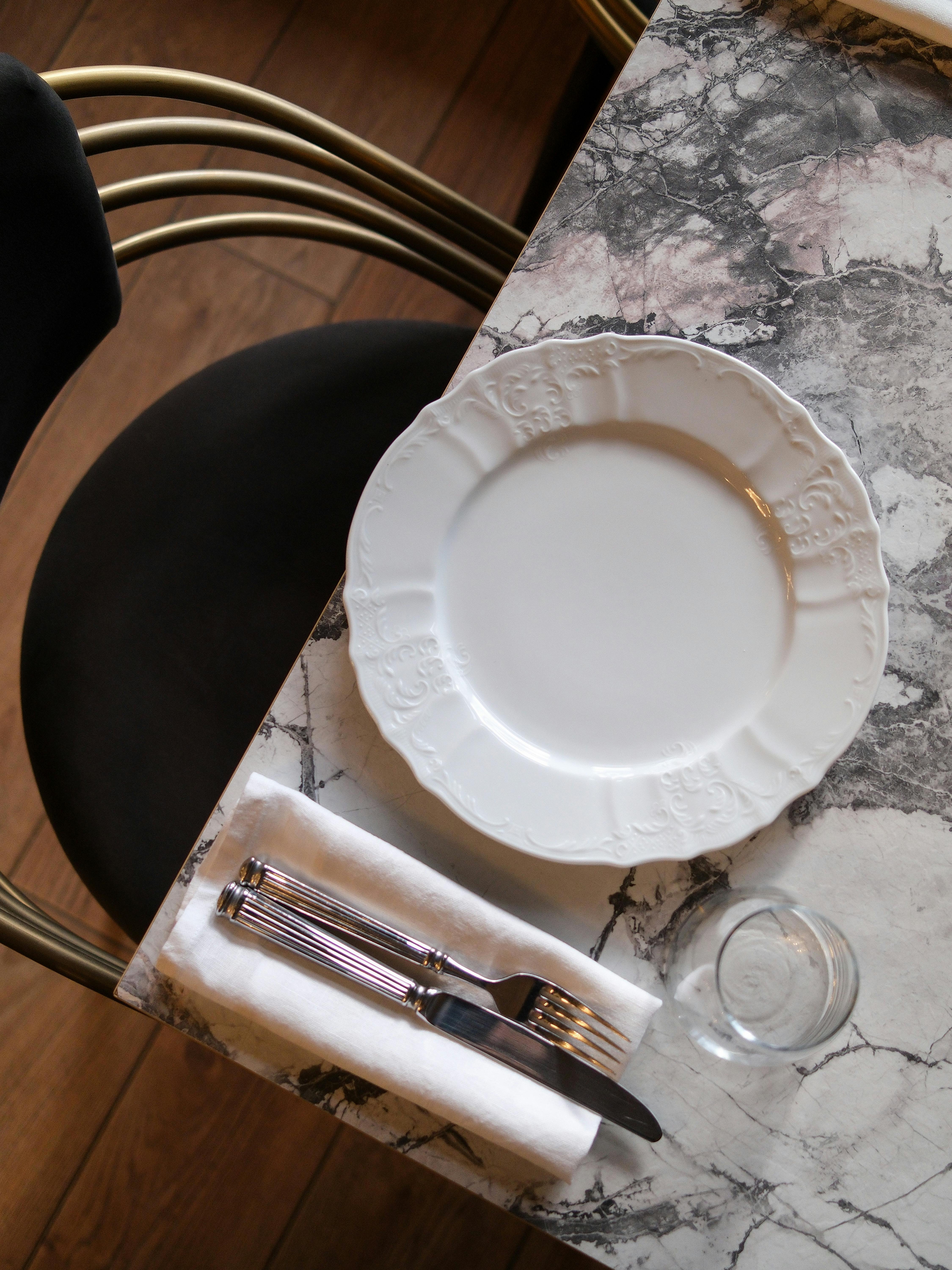
A table at a restaurant | Source: Pexels
I took a breath and walked over to help the poor man. He looked up as I approached and gave a small, apologetic smile.
“Hi,” he said, smiling shyly. “Could I get a menu, please?”
There was something about his voice. It wasn’t raspy or slurred like I expected. It was calm, deliberate, and — strangely enough — refined. Like a man who used to read poetry out loud.
“Of course,” I said and handed him a menu. “Take your time.”
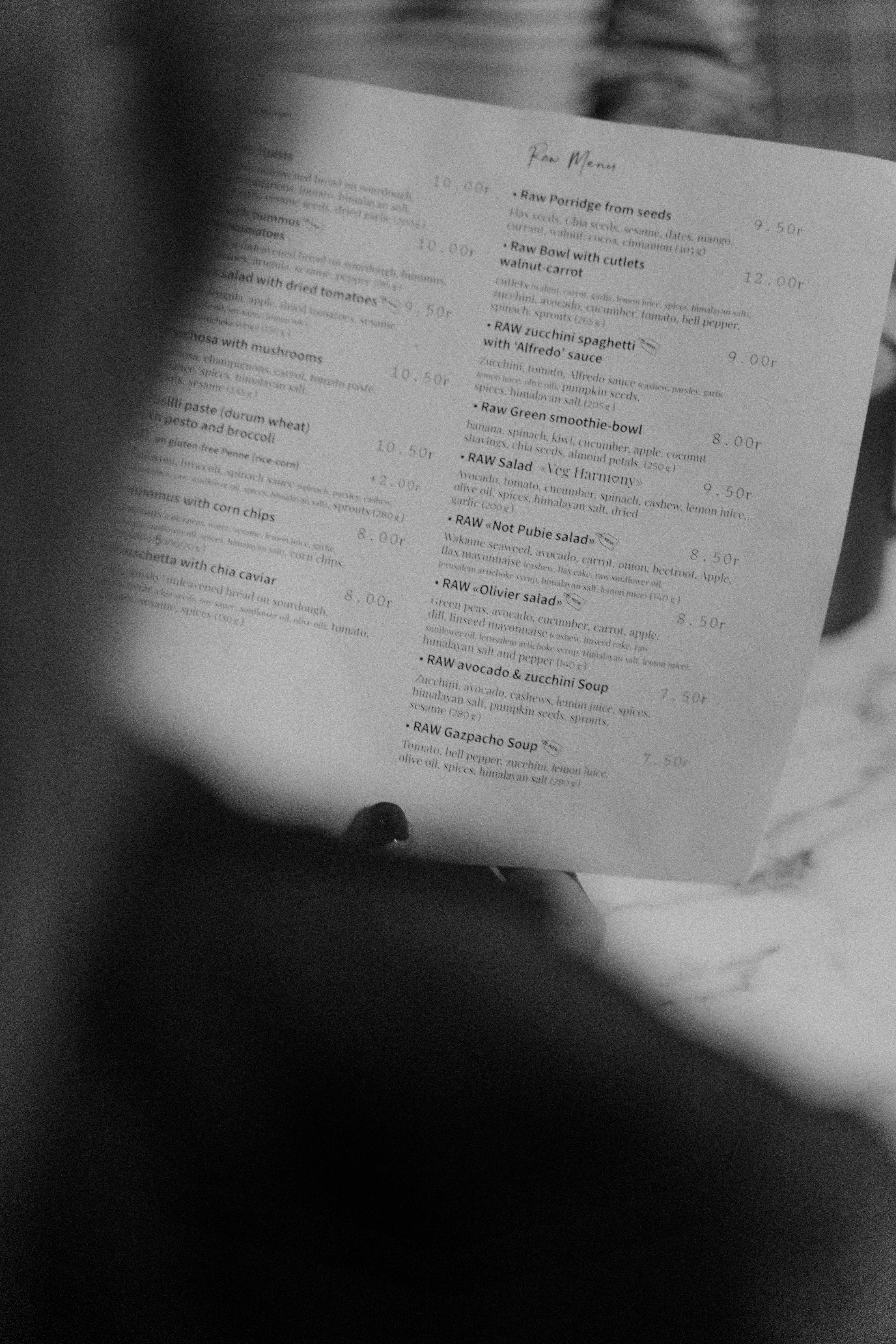
A person reading through a restaurant menu | Source: Pexels
He opened it slowly. His fingers trembled as he scanned the pages, and for a second, I wondered if he could even read it. But he did, carefully — like someone who hadn’t been given choices in a long time.
After a while, he said, “I think I’ll just have the soup and a coffee.”
“That sounds perfect,” I replied, trying to smile through the heat of a dozen stares burning into my back.
As I passed Lila on the way to the kitchen, she leaned toward me.
“Girl, he’s not paying,” she said. “You know that, right? You’ll end up covering it.”
“I don’t mind; I’ll risk it,” I whispered. “He’s hungry.”
She scoffed. “Kindness doesn’t pay the bills.”

A serious waitress | Source: Pexels
I didn’t answer her. I just brought the soup and coffee to his table, set it down gently, and said, “Here you go.”
He looked up at me, eyes glassy. “Thank you,” he said. “It’s been a long time since someone looked me in the eye.”
I swallowed hard and walked away before he could see how much that got to me.
He ate slowly, carefully. Every spoonful looked like it meant something. He didn’t wolf it down like he hadn’t eaten in days — though I suspected he hadn’t. He savored it, like the bowl was a memory he didn’t want to end.

A plate of soup | Source: Pexels
When he was done, he folded his napkin neatly and placed it under his plate before slipping out quietly.
I went to clean the table, bracing myself for the empty check.
But when I lifted the plate and pulled back the napkin, I froze!
Tucked beneath it was a crisp $100 bill and a note.
“You’ve found the secret to happiness — kindness. Watch how it returns to you.”
My heart punched against my ribs. I stood there staring at the note as if it were going to vanish. My hands shook!

A woman’s hands holding a letter | Source: Pexels
When I showed Lila, she burst out laughing, nearly spilling a full tray of wine glasses. “Please! He probably fished that out of a trash can. You just got lucky.”
Maybe she was right. Maybe it was luck. But that note? That note wasn’t trash.
It meant something.
And I was about to find out just how much.

A waitress looking straight ahead | Source: Pexels
About a month later, I saw him again.
He wore the same old coat and a calm smile. But something about him had changed. His shoulders weren’t hunched anymore. His steps were steadier. And though his beard still clung to his chin, his eyes looked clearer, brighter, like something heavy had been lifted.
He walked in right at the start of my shift and gave a little wave like we were old friends.
When Lila saw him, she shot me a look like, “Here we go again.”

A waitress with an awkward smile | Source: Pexels
I smiled and seated him at the corner table near the window.
“Back for more soup?” I joked as I handed him a menu.
He chuckled. “Not today. I think I’ll try the steak and maybe some dessert.”
My eyebrows lifted, and I could already feel Lila staring at us from the bar.
I took his order and noticed something strange. There was no hesitation in his voice, no trembling fingers this time. When I brought the food, he said thank you again, but it was different now — warmer, fuller.
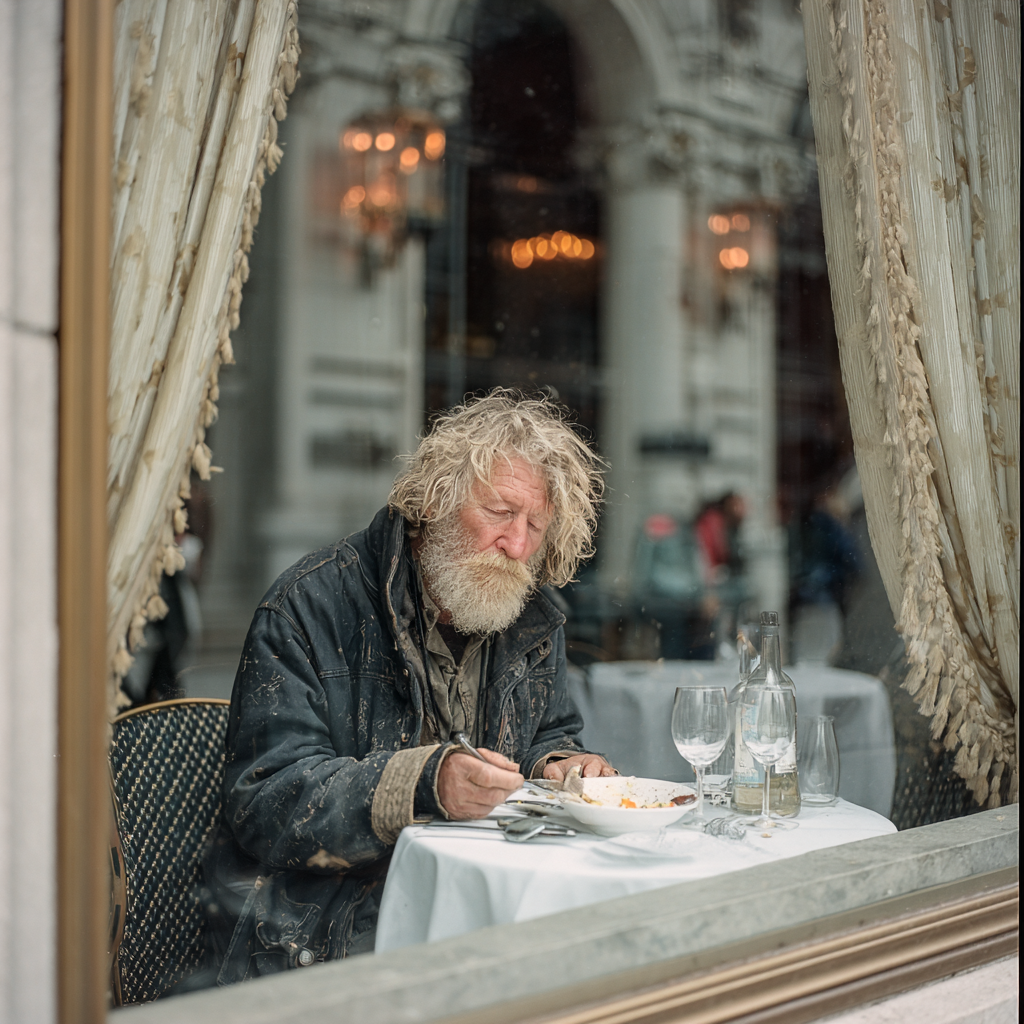
A homeless man eating | Source: Midjourney
After dessert, he stood up. I was just starting to clear a nearby table when I heard two sharp claps.
The sound echoed through the room. Everyone stopped talking.
Then, in a voice that didn’t waver, he said, “My name is Elliot Reeves, and I own this restaurant.”
A full second passed before anyone reacted. Then the gasps came!
I froze in place.

A close-up of a shocked woman’s face | Source: Pexels
Lila’s face drained of color. Brennan nearly dropped the host stand tablet. The pianist sat still, fingers hovering above the keys. The manager, who had just walked in, froze mid-step. “Sir… what—?”
And then Elliot reached up, gripped his beard, and pulled it clean off!
Underneath was a clean-shaven man in his mid-50s. He had a sharp jaw and strong features. His worn coat looked less like a necessity and more like a costume now.
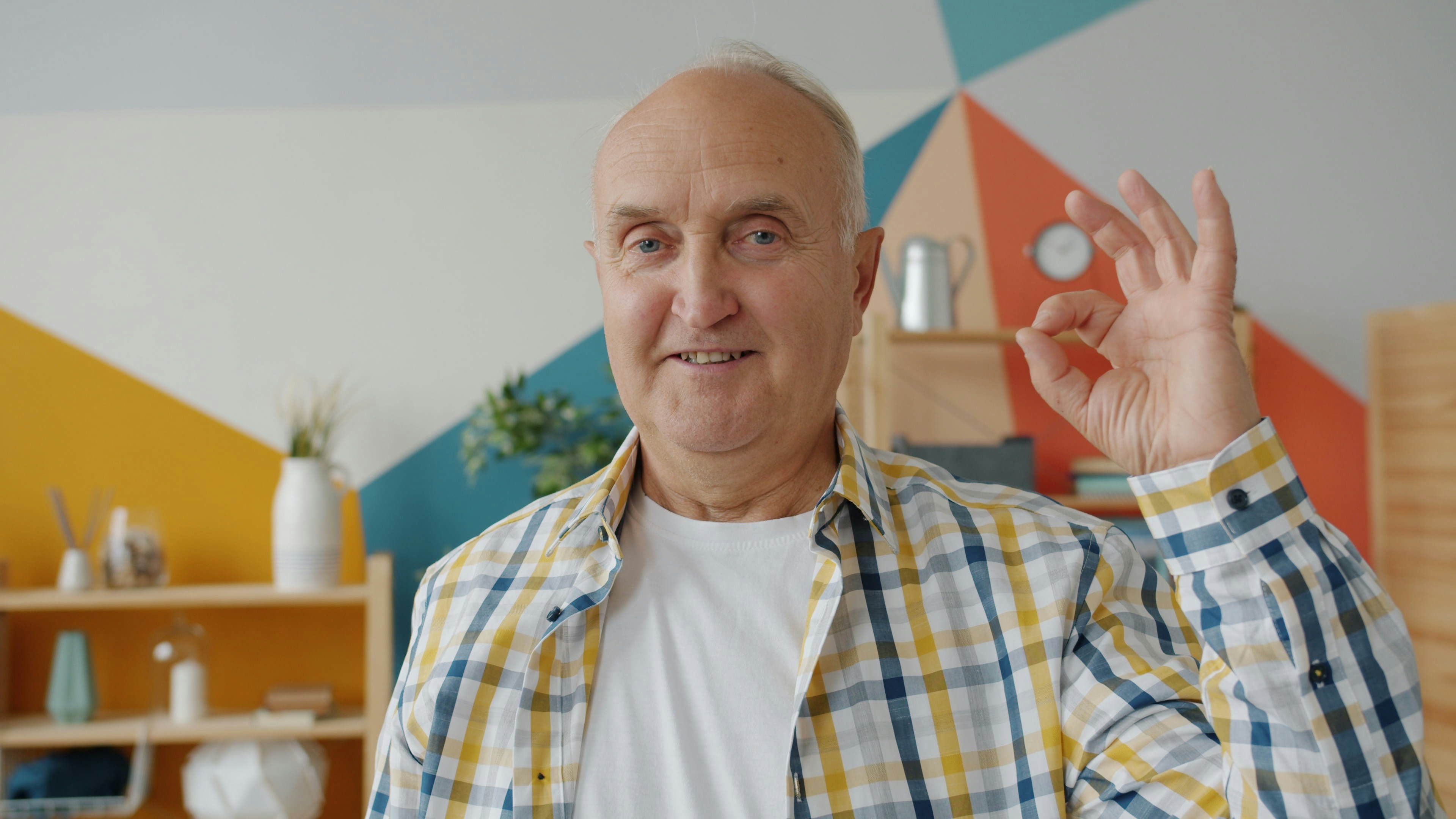
A man smiling | Source: Unsplash
“I’ve been coming here in disguise for weeks,” he said, his voice ringing through the stunned silence, “to see how my staff would treat someone who isn’t rich or doesn’t look like they belong.”
No one spoke. A few customers lowered their phones, realizing this wasn’t some TikTok stunt. This was real.
Lila turned pale.
Elliot walked toward me.
I straightened, trying to stop my knees from giving out.

A waitress smiling awkwardly at work | Source: Pexels
He stopped in front of me and said, “Only one person treated me with basic decency. One person fed me without judgment. Smiled when others turned away. You reminded me why I opened this place.”
I couldn’t breathe.
“What’s your name?” he asked.
“M-Maya,” I stammered.
He nodded. “Maya, you’re everything this restaurant should stand for.”
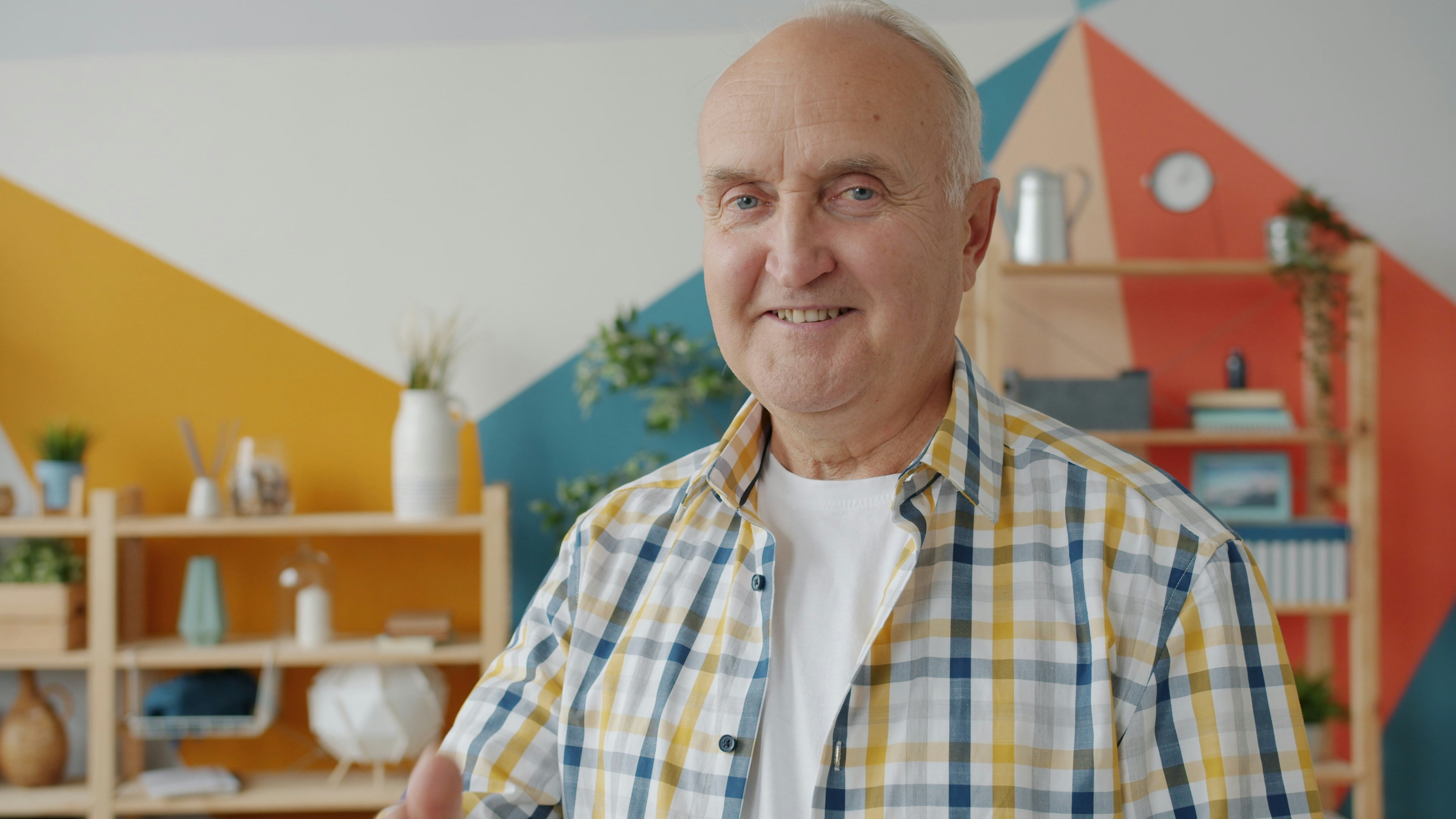
A happy man | Source: Unsplash
Then he turned to our manager, who had just come back from his supplier run, still looking utterly stunned.
“Effective immediately, she’s the new shift lead,” Elliot said. “And she gets a raise. Triple her current pay.”
The room erupted! Half of the servers clapped. The other half — mostly Lila’s crowd — just stood there like someone had unplugged them.
I could feel her eyes burning into me, but I didn’t care. My throat was tight, and my chest felt like it might cave in.

A shocked woman | Source: Pexels
Later, after the dining room had returned to normal and the dinner rush was just starting to trickle in, Elliot pulled me aside.
We stood near the service hallway, away from the murmurs and curious glances, the shock having worn down.
“You reminded me of my wife,” Elliot said softly. “She passed a few years ago. She used to say, ‘Kindness is never weakness.’ I forgot that for a while.”
I couldn’t stop the tears. I cried right there, next to the walk-in freezer, while this man — who I’d thought was a stranger — offered me the kindest words anyone had ever said to me.
But that wasn’t the end of it.

A waitress holding a tiny cup | Source: Pexels
Elliot and I grew close after that day. He would come in every week and sit in the same booth, the one near the window. We’d talk about everything: life, grief, food, the customers we loved and the ones we tolerated.
Sometimes he’d just sit there with his coffee and read while I worked.
It became a rhythm, a comforting one.
Then, just like that, he was gone.
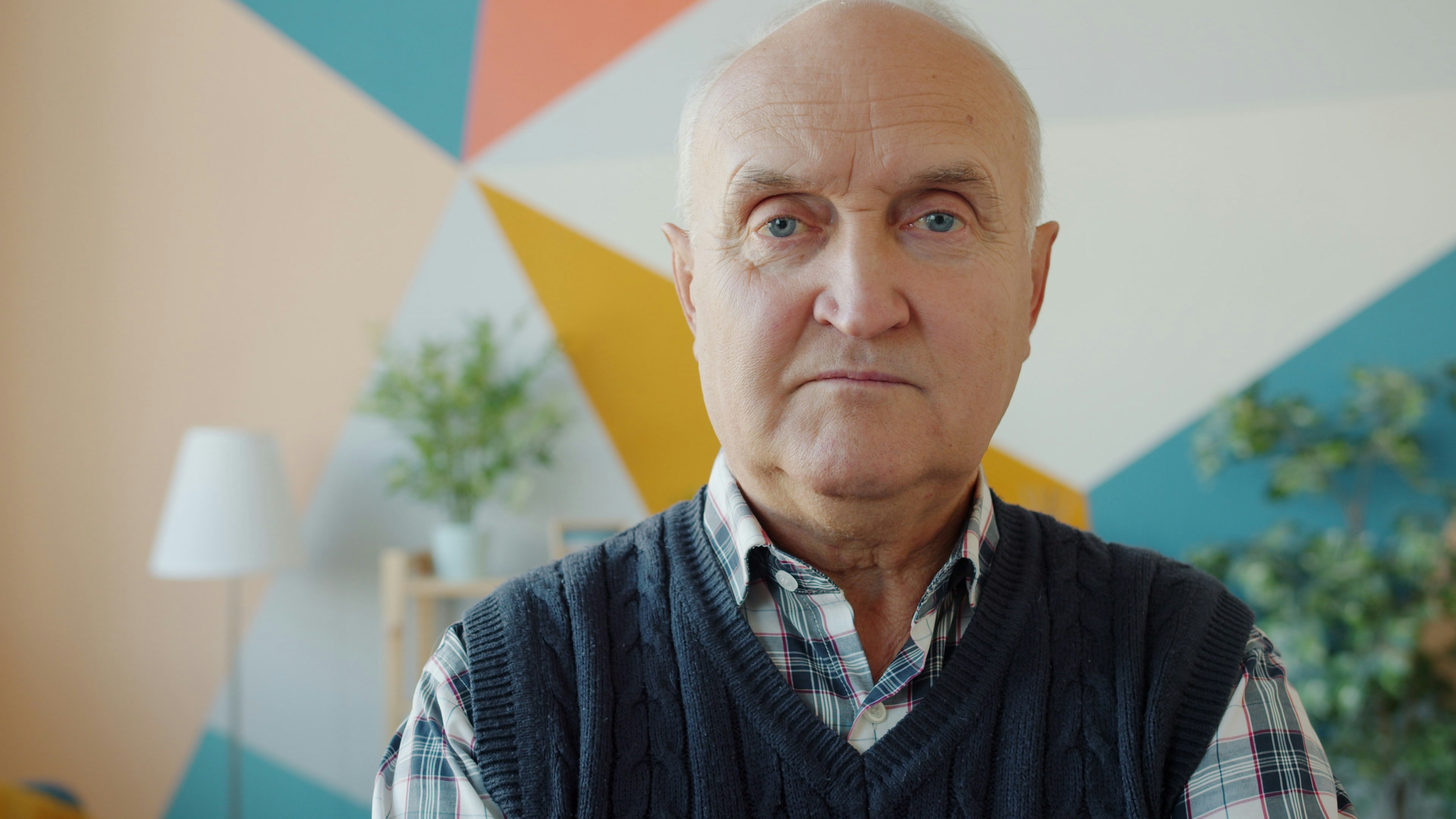
A serious man | Source: Unsplash
It happened three months after the reveal. A sudden heart attack. There was no warning.
I got the call from Caleb, his son. I hadn’t met him yet, but he sounded devastated.
The funeral was quiet, beautiful, and full of people who had no idea about Elliot’s strange experiment. People who only knew the version of him who hosted galas and donated to charities.
After the service, a tall, quiet man in his mid-30s with tired eyes and a tight-lipped smile approached me.
“You’re Maya?” he asked.
I nodded.

A sad woman at a funeral | Source: Pexels
“I’m Caleb. My father talked about you. Constantly. He said you were the reason he started smiling again.”
I didn’t know what to say. I just nodded as tears filled my eyes again.
A week later, I received a letter in the mail. It came in a thick envelope. My name was written in a neat, steady hand.
Inside was a note from Elliot.
“Maya — you taught me that there’s still light in people. Thank you for feeding me when I was invisible. Enclosed is something to help you feed others.”

A woman reading a note | Source: Pexels
When I unfolded the second paper, I nearly dropped it!
It was the deed to the restaurant! My late boss had left me The Golden Fork!
The will had been updated a month before his death. There was no loophole, no trick. It was mine!
I just… broke down.
When I told Lila, she didn’t even pretend to be happy. She tried to sue, saying I manipulated him, played some long con. But it didn’t go anywhere. Elliot’s lawyers were airtight.

A lawyer in his office | Source: Pexels
And so, I renamed it “Maya’s Table.”
There’s a plaque by the front entrance now that reads: “In memory of Elliot Reeves — who believed kindness feeds the soul.”
Every Sunday, I keep a corner booth open — Elliot’s booth. No one is allowed to reserve it. It’s just there, waiting, in case someone needs it. If someone walks in looking like they’ve been forgotten by the world, I serve them myself. No questions asked.
And two weeks ago, someone did.

A restaurant booth | Source: Pexels
We had just closed for the night. I was wiping down the bar when the front door creaked open.
A teenage boy stepped in. He was maybe 15, skinny, with dirt on his cheeks, and a tattered hoodie. He looked exhausted.
“Are you still open?” he asked.
I hesitated only for a moment before saying, “For you? Always.”
He sat in the corner booth. I made pancakes and cocoa even though the kitchen was closed. He stared at the plate as if he hadn’t seen food in days.

A plate of pancakes | Source: Pexels
Then he looked up at me and said, “You’re Maya, right? My grandpa used to talk about you.”
My hands went still.
“Your grandpa?” I asked slowly. “Was he…?”
“Elliot Reeves,” he said. “He told me that if I ever needed help, I should find you. He said you’d understand.”
He handed me a crumpled piece of paper. I smoothed it out carefully.
It was his handwriting.
“Maya — kindness never ends with you. Keep it going.”
I didn’t even try to hold back the tears that time!
That was the moment I realized the truth: I hadn’t just fed a man. I became part of a legacy.

A woman smiling | Source: Pexels
That night, I sat with the boy and told him stories about Elliot. I gave him a clean set of clothes from the staff locker room. I called a friend who runs a youth outreach shelter and made sure he had somewhere safe to sleep.
I still hear Lila’s voice sometimes. That sharp, mocking tone.
“Kindness doesn’t pay the bills.”
But she was wrong.
It paid me back in something worth more than any tip, any paycheck. It gave me purpose.

A happy restaurateur | Source: Midjourney
Every time I hand over a meal to someone who thinks they’re invisible, I tell them the same thing I told Elliot that first day.
“Don’t worry about it.”
Because sometimes, that’s all it takes to change a life.

A happy restaurateur blowing a kiss | Source: Midjourney
If you’re interested in more stories like this, here’s another one: When Tyler let a homeless woman everyone despised and judged harshly into his art gallery, he didn’t anticipate that she’d point at one of the paintings and say, “That’s mine.” What followed was an unraveling of her history that proved to be larger than life.
This story is a work of fiction inspired by real events. Names, characters, and details have been altered. Any resemblance is coincidental. The author and publisher disclaim accuracy, liability, and responsibility for interpretations or reliance. If you would like to share your story, please send it to info@amomama.com.
